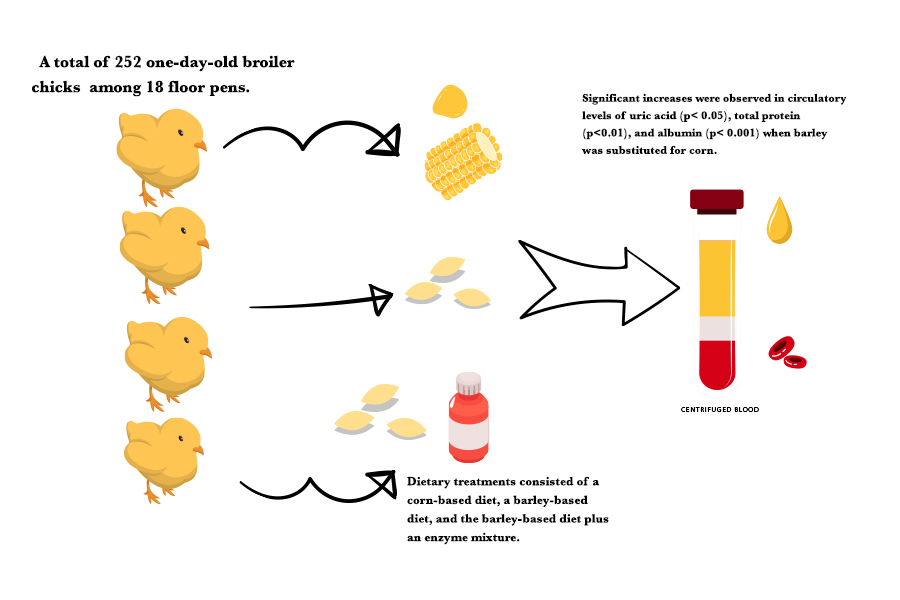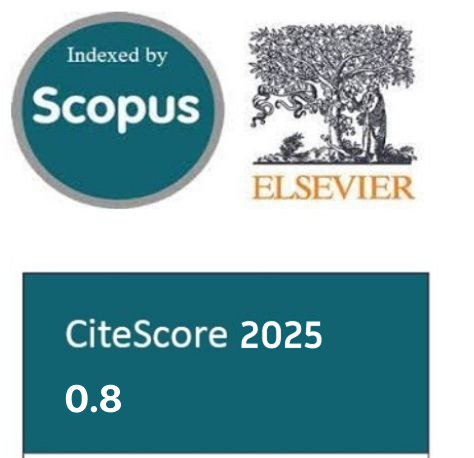Growth performance and gut function of broiler chickens received barley-based diets with or without an enzyme mixture
Keywords:
Cereal type, Chicken, Enzymes, Gut, PerformanceAbstract
An experimental study was performed to evaluate the responses of broiler chickens to dietary substitution of barley for corn. A total of 252 one-day-old broiler chicks were randomly distributed among 18 floor pens. Six such pens were then randomly assigned to each dietary treatment. Dietary treatments consisted of a corn-based diet, a barley-based diet, and the barley-based diet plus an enzyme mixture. Results indicated that barley substitution for corn significantly (p< 0.0001) impacted broiler performance criteria. However, enzyme supplementation significantly (p= 0.02) improved the feed conversion ratio to the extent obtained in the corn control. The villus absorptive surface area was shrunk in birds fed a barley diet compared to the corn diet. Nevertheless, supplementation of the barley diet with the enzyme mixture significantly (p= 0.02) restored the situation. The expression of the TLR2 gene was significantly down-regulated by replacing barley with corn. Enzyme supplementation of the barley diet significantly (p< 0. 001) up-regulated TLR2 gene expression but not to the extent observed in the corn control group. Significant increases were observed in circulatory levels of uric acid (p< 0.05), total protein (p<0.01), and albumin (p< 0.001) when barley was substituted for corn. Enzyme supplements did not make any significant difference to these variables. In conclusion, the substitution of barley for corn was associated with the poor performance of broilers. However, supplementing barley-based diets with the enzyme mixture improved chicken's performance through enhanced villus absorptive surface area. It reduced the turnover of enterocytes, as reflected in a lower crypt depth in the jejunum.
Downloads

Downloads
Published
Issue
Section
License
Copyright (c) 2024 Ali Afifian tehrani, Hossein Hassanpour, Mohammad Amir Karimi-Torshizi, Mohammad Reza Akbari, Faribourz Khajali (Author)

This work is licensed under a Creative Commons Attribution-NonCommercial 4.0 International License.


















